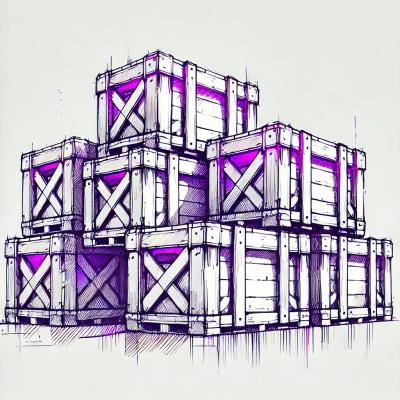
Security News
Introducing the Socket Python SDK
The initial version of the Socket Python SDK is now on PyPI, enabling developers to more easily interact with the Socket REST API in Python projects.
dnode-protocol
Advanced tools
This module implements the dnode protocol in a reusable form that is presently used for both the server-side and browser-side dnode code.
Read about the protocol itself here.
var proto = require('dnode-protocol');
var s = proto({
x : function (f, g) {
setTimeout(function () { f(5) }, 200);
setTimeout(function () { g(6) }, 400);
},
y : 555
});
var c = proto();
s.on('request', c.handle.bind(c));
c.on('request', s.handle.bind(s));
c.on('remote', function (remote) {
function f (x) { console.log('f(' + x + ')') }
function g (x) { console.log('g(' + x + ')') }
remote.x(f, g);
});
s.start();
c.start();
f(5)
g(6)
var protocol = require('dnode-protocol')
Create a new protocol object with a constructor cons and an optional callback
wrapper wrap.
cons should be a function, in which case it will be used to create an instance
by new cons(remote, proto) where remote is an empty reference to the remote
object before being populated and proto is the protocol instance.
If you return an object in cons the return value will be used
(new does that part).
If you pass in a non-function as cons, its value will be used as the instance
directly.
You can optionally specify opts.wrap and opts.unwrap to wrap and unwrap
remote values for implementing weakmaps or marking callbacks.
The return value of opts.wrap(cb, id) will be stored in proto.callbacks.remote[id]
and opts.unwrap(ref, id) will be called with the ref obtained from wrap()
previously to turn ref back into a cb.
Handle a request object emitted by the request event, calling the method the request mentions with the provided arguments.
Emit a request event for the method id method and the raw arguments args.
The args will be scrubbed for callbacks and emitted in normal form suitable for
passing to JSON.stringify().
Begin the methods exchange. All listeners should be bound before this function is called.
Instruct the opposing connection to drop all references to the callback
specified by id.
Emitted when a request is ready to be sent.
The request should be serialized and passed to the opposing connection's
.handle().
Emitted when the remote reference has been populated.
Emitted when there is a non-fatal failed request.
Emitted when there is a fatal exception one of the local callbacks.
With npm do:
npm install dnode-protocol
MIT
FAQs
implements the dnode protocol abstractly
The npm package dnode-protocol receives a total of 4,483 weekly downloads. As such, dnode-protocol popularity was classified as popular.
We found that dnode-protocol demonstrated a not healthy version release cadence and project activity because the last version was released a year ago. It has 1 open source maintainer collaborating on the project.
Did you know?

Socket for GitHub automatically highlights issues in each pull request and monitors the health of all your open source dependencies. Discover the contents of your packages and block harmful activity before you install or update your dependencies.

Security News
The initial version of the Socket Python SDK is now on PyPI, enabling developers to more easily interact with the Socket REST API in Python projects.

Security News
Floating dependency ranges in npm can introduce instability and security risks into your project by allowing unverified or incompatible versions to be installed automatically, leading to unpredictable behavior and potential conflicts.

Security News
A new Rust RFC proposes "Trusted Publishing" for Crates.io, introducing short-lived access tokens via OIDC to improve security and reduce risks associated with long-lived API tokens.